#food safety management systems
Text
Motivations to seek ISO 22000 Certificate

Food Safety Management System (FSMS)
Planning and carrying out a consistent food safety management system framework help organizations in numerous areas to adjust the food safety goals to the business needs. It is basic for the supervisory group to put down food handling targets for a fruitful and significant program to address business issues.
Here are the reason of the top motivations to seek after creating and executing an FSMS:
1. Recognize and arrange food safety gambles:
When this data is known, the board can focus on and choose to lessen business dangers and liabilities to adequate levels. These dangers are many times better controlled by means of a rigid supervisory crew to turn out to be more adjusted about taking a chance with taking care of framework and work on generally speaking tasks.
2. Foster work directions to direct representatives' activities and guarantee food safety task is finished by the management:
This will decrease the gamble to an organization by carrying out ISO 22000 Certification by giving a manual for ISO 22000 food safety that makes the representative or others diminish the organization's gamble of government examinations, fines, and loss of business because of a potential review.
3. Guarantee the executives and grasp the administrative food safety necessities:
These necessities can be a driver of persistent improvement to follow forward-thinking methods and work directions.
4. Foster significant objectives and targets to diminish extra expenses conceivably:
Every business will have various objectives. Objectives guarantee nonstop improvement for the business in food safety execution.
5. Make areas of strength for an instructive program with a composed methodology:
A thoroughly prepared labor force is propelled and assists with decreasing mishaps and episodes and helps in increment creation efficiencies. Workers are extremely mindful to guarantee that each occupation mentioned is finished in the most secure way conceivable.
6. Foster proper observing practices:
When all food handling prerequisites in view of the consistency of ISO 22000 Certification are achieved the organization needs to monitor and comprehend to check sanitation execution in light of logical information and guidelines and guide the association's activities.
7. Check that the FSMS is working as executed:
By constantly evaluating food safety program organization will find issues of concern and non-conformances before any episodes and mishaps occur or discoveries by an outsider or guaranteeing body. Schedule, nonbiased reviews permit the organization to advance the circumstance without excessive impact by outcasts.
8. Monitor issues of concern and additionally non-conformance o amend what is happening following completely working remedial activities:
By utilizing ISO 22000 Certificate an organization can self-reflect and distinguish improvement potential open doors and activities across numerous divisions of the organization. Every one of these upgrades helps the primary concern and decreases the chance of a sanitation obligation now or later on.
9. Know and accept that the organization has taken on everything in a way that meets all food handling rules and guidelines:
The last and most significant advantage that goes through the method involved with planning and carrying out ISO 22000 Standard FSMS realizes that the association meets all food handling regulations, and guidelines.
Accomplishing ISO 22000 Certificate assists the organization with keeping up with the commitment of food safety to shoppers and constructing new clients. This likewise helps in opening the entryways for business universally and meets generally required targets of the association. To an entrepreneur, the execution of ISO 22000 Certification is an extremely valuable accomplishment in giving safe food to its end clients.
ISO 22000 Certification process
To make the ISO 22000 Certification process basic and hustle-free, employing a specialist will direct you and your business through the accompanying moves toward accomplishing ISO 22000 Certificate by giving.
1. Gap analysis
2. Testing
3. Documentation and Test Report
4. Process Review
5. External Review
6. Certification and then beyond
#ISO 22000#ISO 22000 Certification#ISO 22000 FSMS#food safety management systems#ISO 22000 Food Safety#Food Safety#ISO 22000 Certificate#ISO 22000 Standard
0 notes
Text
A Guide to Building Trust and Loyalty in Food Service Business
Cultivating trust and loyalty among customers, particularly those with food allergies, is indispensable in food service settings where dietary preferences and restrictions are as diverse as the dishes served. Establishing a bond built on transparency, safety, and exceptional service goes beyond mere transactions; it's all about fostering relationships that can withstand the test of time. This article delves into the pivotal strategies food service establishments can employ to earn their clientele's trust and inspire unwavering loyalty.
Trust is built over time through consistently delivering exceptional service, and loyalty follows when customers feel understood, respected, and safe.
Building Trust with Customers
Building trust with customers, particularly those with food allergies, involves a consistent commitment to safety, transparency, and excellent service. Here are key strategies to cultivate trust:
Be Transparent and Honest: Be upfront about your menu and the potential allergens in your food. Honesty fosters trust and is particularly crucial for customers with food allergies.
Ensure Safety: Implement rigorous food handling and preparation protocols to avoid cross-contact with allergens. Customers will trust your establishment when they feel their health is prioritized.
Maintain Consistency: Deliver consistent service quality, from the food quality to the attentiveness of the staff. Consistency signals reliability, building trust over time.
Acknowledge Mistakes: If a mistake happens, own up to it, apologize sincerely, and rectify the situation promptly. This demonstrates integrity and can strengthen trust.
A Guide to Fostering Loyalty
Loyal customers are invaluable to the long-term success of your establishment. They not only frequent your business but also recommend it to others. Here's how you can foster loyalty:
Provide Exceptional Service: Always aim to exceed customer expectations. A satisfied customer is likely to return and become a loyal patron.
Personalize the Experience: Remember regular customers, their preferences, and their allergies. Personal touches like these make customers feel valued and enhance their loyalty.
Encourage Feedback: Ask for feedback and show customers you value their input. Make necessary changes based on their suggestions, which can increase their loyalty.
Reward Loyalty: Implement a loyalty program or offer discounts to regular customers. Rewards give customers a tangible reason to return.
When dealing with allergic customers, their safety is the top priority. Their trust in your ability to cater to their dietary needs and prevent cross-contact with allergens is critical. Their loyalty stems from repeated positive experiences where they feel understood, cared for, and safe.
Maintain clear communication, offer allergen-free options, and train your staff adequately to handle food allergies.
In conclusion, ensuring clear and accessible communication regarding allergens in food packaging and labeling is vital. Factors like label design, multilingual labeling, symbols, packaging materials, and integrity are crucial in keeping us safe, especially those with food allergies.
Every detail matters in creating a safer food environment, from ensuring the labels are easy to read to selecting the right packaging materials to prevent cross-contact. These steps aren't just about meeting regulations but looking for each other's well-being. By prioritizing these aspects, we minimize risks and build trust and confidence in the products we consume.
Overall, it's a reminder of the personal impact of allergen awareness and the importance of taking it seriously in our everyday lives.
#Trust building#Loyalty fostering#Food service business#Customer relationships#Transparency#Safety commitment#Exceptional service#Consistency#Integrity#Customer feedback#Personalization#Allergen management#Cross-contact prevention#Customer safety#Loyalty programs#Reward systems#Communication#Allergen awareness#Labeling#Packaging#Regulatory compliance.
0 notes
Text
The Food Safety Management System Lead Auditor Certification is designed to incorporate a candidate with the knowledge and skills required to assess the compliance of Food Safety Management Systems set up under the requirements of ISO 22000:2018. Not just the international standard, but sector specific technical specifications for Prerequisite Programmes (PRPs) provided in ISO/TS 22002-1:2009 shall also be integrated with the Certification to intimate the participant with the needs of the international food sector.
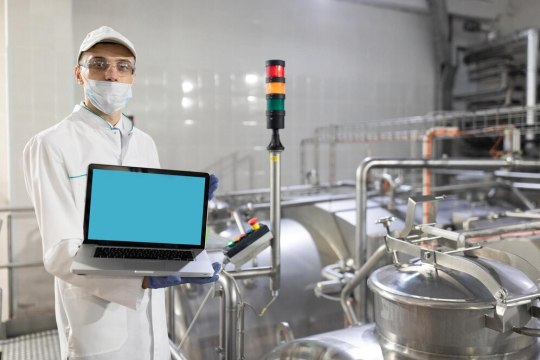
#FSMS Lead Auditor#Food Safety Management System Lead Auditor Certification#HACCP COURSE#Food Safety Management
0 notes
Text
Mastering Food Safety: A Step-by-Step Guide
A Food Safety Management System (FSMS) is a comprehensive framework that ensures the safe handling, production, and distribution of food. This step-by-step guide covers essential elements such as food hygiene, labeling, allergen control, and additive management. It emphasizes thorough training, hazard planning, robust monitoring, and traceability systems. Implementing an FSMS involves creating a dedicated team and understanding the intricacies of food production processes to uphold safety standards effectively. Here is my blog:https://lead-academy.org/blog/food-safety-management-system/

0 notes
Text
Learn About Food Safety Hazard Types: ISO 22000 Management System!
Do you know that around 128,000 people get hospitalized every year due to foodborne illness in the United States?
While the numbers are saddening, it's not surprising considering the complex supply chain of the food manufacturing industry.
This is why the ISO 22000 food safety management standard has made food hazard identification one of the foundational requirements of the standard.
Once you identify the potential food hazards threatening your company, you can easily create plans to eliminate them.
In today’s blog, we are looking at the different types of classifications of food hazards to spread awareness.
So, if you want to make your food products safe for consumption, continue reading!
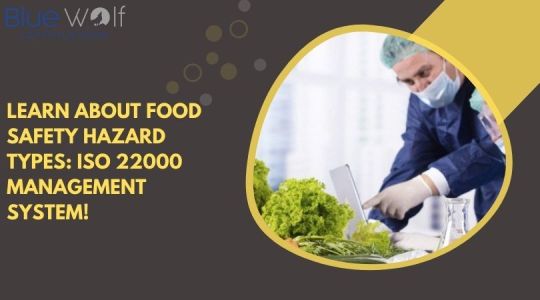
What is a Food Safety Hazard?
A food safety hazard is an element or substance that can contaminate food materials and lead to health problems in consumers. Food contamination refers to the presence of hazards in food.
Contamination can occur at any step of the food supply chain, such as transition, harvesting, packaging, processing, serving, delivery, and storage.
It is one of the reasons why the ISO 22000 food safety management standard encourages hazard control in every domain of the food industry.
Furthermore, food hazards can be present in some food naturally, and at other times, some external source may introduce the hazard. Each food hazard type needs specific controls to eliminate them.
The Four Most Common Types of Food Hazards
Most experts classify food safety hazards into four categories: biological, physical, chemical, and allergens.
Biological hazards
Biological hazards primarily originate from living organisms. This type of hazard has its own sub-divisions, such as spore-forming bacteria, non-spore-forming bacteria, parasites, protozoa, and viruses.
Some common examples of biological food hazards are:
Bacteria
Fungi
Yeasts
Parasites
Viruses
These biological hazards are among the most common causes of outbreaks. They depend on:
Nutrients of the food
Its pH level
Time
Temperature
Oxygen
Moisture level
The most common sources of biological hazards include:
Raw materials
Water
Food handlers
Storage
Contact surfaces
Equipment
Pests
Chemical hazards
Chemical hazards have four classifications: naturally occurring, from packaging materials, added, and contaminates.
Naturally occurring chemical hazards are the ones that you can naturally find in any food, such as saponins from legumes. The rest of the chemical hazards contaminate the food intentionally or unintentionally through the supply chain.
Typical sources of chemical hazards include:
Raw materials
Heat treatment
Preservatives or additives
Cleaning agents
Soil conditioners
Physical hazards
Physical hazards refer to extraneous material or foreign objects that can result in injury or contamination.
This type of hazard can come from several sources, such as:
Product
Packaging
Plant
People
Premises
Metal fragments, stones, bones, and glass shards are common examples of physical hazards.
Allergens
Allergens are hazards caused by proteins. This type of hazard may affect some individual’s immune systems, making them dangerous to consume.
Since proteins are a natural part of the food system, preventing allergy hazards can be challenging. But a clever way to start is being transparent about the ingredients included in your food so the buyers can avoid the allergy-causing items.
The most common allergens include:
Eggs
Milk
Shellfish
Peanuts
Tree nuts
Wheat
Soybean
Fish
Sesame
Mustard
Mollusks
Sulfites or sulfur dioxide
Lupin
Celery
Summing Up
Once you identify which type of food hazard poses the most significant threat to your supply chain, you can use the food hazard assessment guidance of ISO 22000 food safety management standard. It will help you identify the root cause of the threats and address them promptly. You can check out clause 8.5 of ISO 22000 to learn more about the requirements regarding food hazard and analysis.
0 notes
Text
A Hazard Analysis Critical Control Point (HACCP) system tries to reduce food safety risks and hazards. HACCP detects potential threats to public health and enables a proactive approach to food safety by establishing crucial control points.
The HACCP system identifies and regulates the three potential food safety hazards: biological, chemical, and physical. Companies that manufacture, process, or handle food items are encouraged to employ a HACCP plan to reduce or eliminate food safety hazards in their goods.
#HACCP Documents#HACCP#HACCP Certification#HACCP Training#food safety management system#food safety#Hazard Analysis Critical Control Points
0 notes
Text
The requirements for a food safety management system (FSMS) are outlined in ISO 22000, a global standard. Through the whole food supply chain, it offers a systemic and comprehensive approach to managing food safety threats. The ISO 22000 certification, which recognizes your dedication to guaranteeing the food safety of the food you supply, is a badge of honour for anyone who produces, processes, or distributes food.
#ISO 22000 manual#ISO 22000 documents#ISO 22000 certification#Food safety#food safety management#food safety management system#ISO 22000#FSMS
0 notes
Text
Stay Ahead in the Food Industry with Food Safety Management System Certification
A Food Safety Management System (FSMS) certification ensures that food products are safe for human consumption. It involves a systematic approach to managing food safety risks, including identifying potential hazards, implementing controls, and continuous monitoring. FSMS certification also enhances a company's reputation and increases consumer confidence in the safety and quality of its products. Certification is typically granted by third-party organizations after a rigorous audit process. Compliance with international standards such as ISO 22000 or the Hazard Analysis and Critical Control Points (HACCP) system is a common requirement for certification.
0 notes
Text
ISO Internal Auditor Qatar: Enhancing Quality Management Systems with Cascotec.com
ISO Internal Auditor Qatar: Enhancing Quality Management Systems with Cascotec.com
In today's global marketplace, it's more important than ever to have robust quality management systems in place to meet customer demands and ensure regulatory compliance. ISO certification is an internationally recognized standard that helps organizations demonstrate their commitment to quality and continuous improvement. Cascotec.com is a leading provider of ISO internal auditor training and certification services in Qatar, empowering organizations to achieve their quality goals. In this article, we will explore the benefits of ISO internal auditor certification and how Cascotec.com can help organizations in Qatar achieve this certification.

What is ISO Internal Auditor Certification?
ISO internal auditor certification is a process that helps organizations demonstrate their ability to meet ISO standards and achieve their quality objectives. It involves a comprehensive review of an organization's quality management system by an independent third-party auditor to ensure that it meets ISO standards. The ISO standard sets out a framework for quality management that helps organizations improve their efficiency, reduce waste, and enhance customer satisfaction.
Benefits of ISO Internal Auditor Certification
Improved Quality: ISO internal auditor certification helps organizations improve their quality management systems, leading to better products and services and increased customer satisfaction.
Increased Efficiency: ISO internal auditor certification helps organizations streamline their processes and reduce waste, leading to increased efficiency and productivity.
Enhanced Regulatory Compliance: ISO internal auditor certification helps organizations ensure that they are meeting regulatory requirements and avoiding potential penalties.
Competitive Advantage: ISO internal auditor certification helps organizations stand out in the marketplace and win new business by demonstrating their commitment to quality and continuous improvement.
Cascotec.com's ISO Internal Auditor Training and Certification Services
Cascotec.com offers a comprehensive range of ISO internal auditor training and certification services in Qatar. The company's team of experienced auditors and trainers provides organizations with the knowledge and skills they need to achieve ISO internal auditor certification.
Training Courses
Cascotec.com offers a range of ISO internal auditor training courses that are designed to meet the specific needs of each organization. The company's training courses cover the principles and requirements of ISO standards, as well as the skills and techniques needed to conduct effective internal audits. Cascotec.com's training courses are available in a variety of formats, including classroom-based, online, and on-site training.
Certification Services
Cascotec.com's ISO internal auditor certification services are designed to help organizations achieve their quality management objectives. The company's team of auditors provides a comprehensive review of an organization's quality management system to ensure that it meets ISO standards. Cascotec.com's certification services include pre-audit assessments, on-site audits, and post-audit support to help organizations achieve and maintain their certification.
Consulting Services
Cascotec.com's ISO consulting services provide organizations with the support they need to implement and maintain a robust quality management system. The company's team of consultants works closely with organizations to identify areas for improvement and develop a customized plan to achieve their quality management objectives.
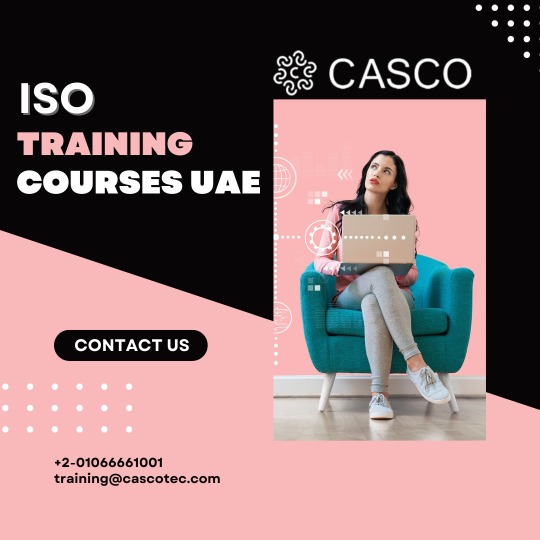
Benefits of Cascotec.com's ISO Internal Auditor Training and Certification Services
Expertise: Cascotec.com's team of auditors and trainers are experienced professionals who have extensive knowledge of ISO standards and the requirements for achieving ISO internal auditor certification.
Flexibility: Cascotec.com's training courses and certification services are available in a variety of formats, allowing organizations to choose the option that best fits their needs and schedule.
Customization: Cascotec.com's training courses and consulting services are customized to meet the specific needs of each organization, ensuring that they are able to achieve their quality management objectives.
Ongoing Support: Cascotec.com provides ongoing support to help organizations maintain their ISO certification and continue to improve their quality management systems.
Conclusion
ISO internal auditor certification is an important tool for organizations in Qatar to demonstrate their commitment to quality and continuous improvement. Cascotec.com is a trusted provider of ISO internal auditor training and certification services that help organizations achieve their quality management goals. By working with Cascotec.com, organizations can gain the expertise, flexibility, customization, and ongoing support they need to achieve and maintain ISO certification. Whether an organization is looking to improve its quality management systems, enhance its regulatory compliance, increase its efficiency, or gain a competitive advantage, Cascotec.com has the knowledge and skills to help them achieve their objectives.
In conclusion, having an ISO internal auditor certification is essential for organizations in Qatar that want to remain competitive in today's global marketplace. ISO certification demonstrates an organization's commitment to quality and continuous improvement, which can help them win new business and retain existing customers. By working with Cascotec.com, organizations can gain the expertise, flexibility, customization, and ongoing support they need to achieve their quality management objectives and maintain their ISO certification. Whether an organization is looking to improve its quality management systems, enhance its regulatory compliance, increase its efficiency, or gain a competitive advantage, Cascotec.com has the solutions to meet their needs.
Source:- https://cascotec.blogspot.com/2023/03/ISO%20Internal%20Auditor%20Qatar%20Enhancing%20Quality%20Management%20Systems%20with%20Cascotec.com.html
#ISO Certification Consultants in UAE#ISO Training courses UAE#Lead Auditor Course in UAE#ISO 9001 Certification Quality Management in Oman#IRCA Certified Training Courses in Oman#Accredited courses in Qatar#ISO Internal Auditor Qatar#HACCP Training courses in UAE#Lead Auditor ISO 22000 in UAE#ISO 27001 in Egypt#Lead Auditor Training Certification in Egypt#Integrated Management Systems IMS Course#BRC Food Conversion Course Version 9#Halal Awareness Course in UAE#ISO 26000 Sustainability in UAE#Health and safety management Systems OHSMS ISO 45001#ISO 21001:2018 Awareness course in Oman#BRC Food Lead Auditor in Egypt#ISO Certification Consultants#ISO Awareness
0 notes
Text


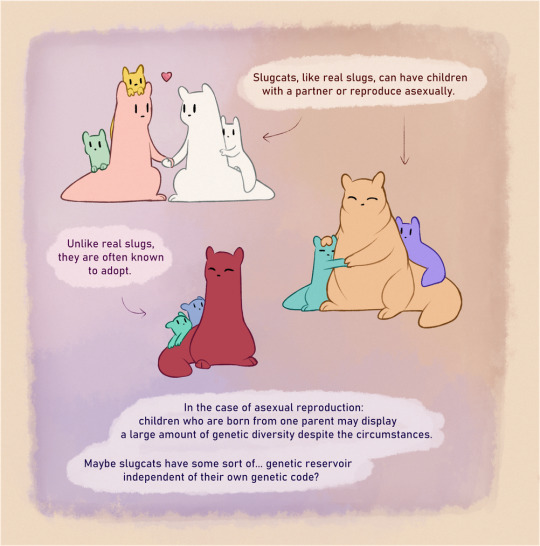
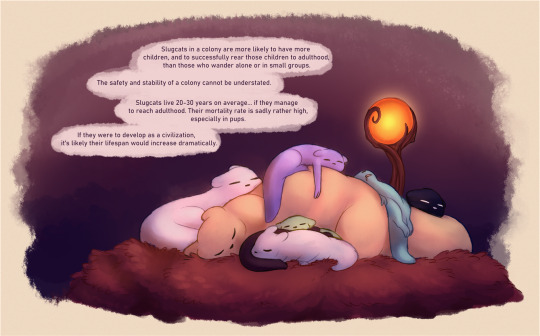
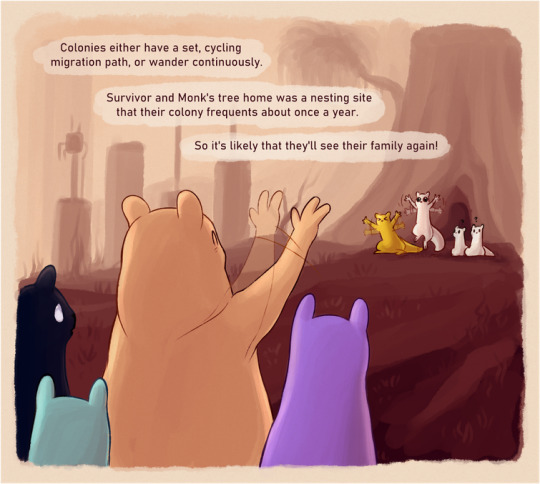


Playing with some ideas mostly regarding gender/reproduction in RW, and slugcat colonies.
Full transcript under the cut!
Creatures in Rain World are typically simultaneous hermaphrodites but require partners to reproduce, with either individual capable of being a genetic donor or carrier. Alongside what we are familiar with, this has lead to interesting reproductive strategies such as rotating donor/carrier roles, or dual/simultaneous genetic swaps.
Rotating donor/carrier roles - A K-selection reproductive strategy. One partner carries the first child, the other partner carries the next child, and so forth. Allows each partner to recover from the demands of childbearing.
Rain Deer aren't quite monogamous, but they tend to choose the same breeding partner whenever mating season rolls around. They serve as a donor one season, then bear and raise a child the next. Calves are raised away from the rain and worm grass, in places that have less food but more safety. Calf wool is softer, not yet gunked up by the dirty rainfall. Their legs are sturdier as children, allowing them to run for cover while the parent wards off threats.
Dual/simultaneous genetic swap - An r-selection reproductive strategy. Parents fulfill the donor and carrier role for each other. The more children you make, the more likely some are to survive!
Multiple batflies lay thousands of eggs in a single "blue fruit." Several eggs congeal and become nutrient paste for the surviving eggs (and for hungry slugcats). Like some plant seeds, batfly eggs that are consumed before pupating can survive passing through the digestive system. Ew.
Ancients also fell under this umbrella. Their genders (and the genders of iterators by extension, who have no sex anyways) could have been determined by a variety of other factors, such as societal role, donor/carrier preference, or simply different categorizations of personal expression.
It's difficult to say how well their common pronouns would translate to ours, but it seems they can translate to an extent, given what Moon and Pebbles use canonically.
Slugcats, like real slugs, can have children with a partner or self-fertilize. Unlike real slugs, they are often known to adopt.
In the case of self-fertilization: children who are born from one parent may display a large amount of genetic diversity despite the circumstances. Maybe slugcats have some sort of... genetic reservoir independent of their own genetic code?
Slugcats live 20-30 years on average... if they manage to reach adulthood. Their mortality rate is sadly rather high, especially in pups. If they were to develop as a civilization, it's likely their lifespan would increase dramatically.
Slugcats in a colony are more likely to have more children, and to successfully rear those children to adulthood, than those who wander alone or in small groups. The safety and stability of a colony cannot be understated.
Colonies either have a set, cycling migration path, or wander continuously. Survivor and Monk's tree home was a nesting site that their colony frequents about once a year. So it's likely that they'll see their family again!
...also, the strength of large colonies are why scavengers are likely to become the dominant species. In the time of Saint's era, continuous migration has become more of a risk, and it has become more difficult to support large populations. Slugcat populations have shrunk back to the more forgiving equatorial zones.
Saint's tongue is pretty unusual and probably unique to them, or to a small population that they hail from. Fur (of varying thickness) is much more common.
Meanwhile, scavengers are bulkier and covered in thicker insulating fur. They:
have seemingly massive populations
have a burgeoning society (the existence of merchants, tolls, bartering, elites and leaders)
are adept at communicating (non-verbally)
manipulate their environment
can build structures (scavenger-made structures were a scrapped idea from Saint's campaign)
can create complex weapons and tools
may have agriculture behind the scenes (unsure if scout parties prioritize exploration or hunting)
I would wager on scavengers developing more quickly than slugcats, but it would be nice if there was a future where both could co-exist.
#oops! impromptu rendering practice!#rotating donor/carrier roles could also be an r-selection strat#but i feel like it'd be more common as a k-selection strat#rain world#worldbuilding#headcanons#flickerdoodles#art#um#ask to tag?#that goes for all of my posts#rw spoilers#dp spoilers#saint spoilers#long post
2K notes
·
View notes
Text
BSc Aquaculture Studies: Your Path to a Sustainable Future
Introduction
Aquatic medicine – mostly refers to veterinary care of fish in aquaculture (like salmon, cod,among other species), but can also include care of aquatic mammals.For certain countries with high economic income from aquaculture, this is an important part ofthe veterinary field (like Norway, Chile). Other countries (particularly those who are landlocked),might have little or no emphasis…

View On WordPress
#1.#Aquaculture economics 22.#Aquaculture education 2.#Aquaculture engineering 23.#Aquaculture feed formulation 14.#Aquaculture industry trends#Aquaculture technology 7.#Aquatic animal behavior 26.#Aquatic animal health 16.#Aquatic animal nutrition 5.#Aquatic animal welfare 18.#Aquatic biosecurity 20.#Aquatic ecosystem management 8.#Aquatic ecosystem restoration 25.#Aquatic environment management 15.#Aquatic feed technology 24.#Aquatic food safety 19.#Aquatic food systems 28.#Aquatic genetics 13.#Aquatic health management 6.#Aquatic pathology 11.#Aquatic policy and governance 27.#Aquatic product marketing 29.#Aquatic research methods 30.#Aquatic resource conservation 21.#Bsc in Aquaculture 3.#Fish breeding techniques 12.#Fish farming practices 17.#Fisheries management 10.#Marine biotechnology 9.
0 notes
Link
This food safety management system Auditor/Lead Auditor course has been designed and developed to provide learners with the knowledge and skills required to perform first, second and third-party audits of an FSMS as per ISO 22000:2018, in accordance with ISO 19011-2018, ISO TS/22003-2013 and ISO/IEC 17021-1:2015, as applicable.
#Lead Auditor Training#ISO 22000:2018#Food Safety Management System#FSMS#lead auditor course#lead auditor
0 notes
Link
FSPCA PCQI Training
BD Food Safety Consultants LLC is a food safety consultancy company that provides FDA and FSMA PCQI training courses.
#healthy food#food safety training#onlinetraining#online learning#online classes#learning management system#food safety
0 notes
Text
Things People Don’t Mention About Top Surgery or Mastectomies
There is reluctance to do the surgery if you live alone, even if you have a good support system. One of the most stressful things was the hospital constantly asking about who would be looking after me, picking me up, etc. I really felt the bias towards people who are married and against people who are single. I don’t think it was intentional but it was definitely there. (Please read more about this situation here) That being said you will definitely need a robust support system of some kind to get through everything in the first 4 -8 weeks or more after surgery.
All your pill bottles will have safety caps and you won't have the strength to open them on your own without a lot of struggling.
There are soooo many medications. Take them as prescribed and when they say take the level of pain meds you need to manage your pain, do it. I got opiods and ibuprofen. If the pain is bad 5-7+ on the 1-10 scale take the stronger meds. Pain can slow healing by causing stress on the body.
Drains are a pain in the ass. Every hour pushing the hoses so they don't clog. Major drag but they are very important and if they get clogged it can cause issues
Sleeping sitting up, prepare for this. Lots of pillows or recliner or something. Practice for a week or more before surgery to get used to it.
Sleep as much as you need. Don't feel like you should stay awake or whatever because you are supposed to or it is day time or whatever. Listen to your body.
Drink lots and lots of fluids. You may think you are drinking enough but you probably aren't. The fluid in the drains and the medicines and peeing all the time and sweating from the tight wrap. You need to replace all of this fluid. I think I have been up around 80+ oz the past few days.
The month before and a month after surgery eat a high protein and higher calorie diet. It will help with surgery and recovery. You need the energy and the protein to recover.
Cut out added salt, caffiene, alcohol, and nicotine before surgery and during recovery. All of these can increase fluid retention, slow healing, or be dangerous with the meds.
Your chest will feel very strange. At first you can't feel anything and then the skin feels tight everywhere and still strange. The recovery process feels real weird. Your whole torso feels kind of bizarre and new.
Ask all the questions. No question is stupid. It's trauma to your body ask all the questions. YES all of them.
The tube (intubation) from surgery irritates the throat. Coughing from this sucks so damned much because of the binder and the chest tightness and what not. Find lozenges (Both cough drops and just candy) that you like. I say candy because too many cough drops can upset the stomach and you don't need that after anesthesia and with all the meds. Also get popsicles.
Take everything out of packages you can before surgery. They are damned hard to open. Those paper cartons holding the apple sauce and snapping apart pudding cups and pulling apart pill blister packs.. ugh I should have taken them apart before the surgery.
Scissors are your friend and every package is an enemy. Seriously, get a good pair of scissors for packaging.
Also, skip 2 liters of pop, gallon of milk, etc. They will be too heavy to pick up after surgery. You can be more independent if you get smaller size things.
Timers are your friend. All the phone timers forever. Also, handwritten or some other chart type to keep track of drain cleaning and taking meds. You will be sleepy and forgetful the first few days. Use other things to help you keep track.
Take stock of how your lights go on and off. Can you reach them while pretending you are a T-Rex. If not, especially ceiling fans and that, put long strings on the pulls so that you can operate them while you can't raise your arms.
Also check your doors to make sure they don't stick. You won't be able to tug hard on doors or drawers or whatever.
Get yourself some treats. Food related or clothing or whatever. Treats will help.
Before surgery plan out and prepare at least a week of meals. Be sure to include some that are easy on the stomach like crackers, rice and chicken, etc. Just in case you have stomach upset from the anesthesia or meds. Gentle foods include starches and chicken/tofu that is low fat and low spice so that it is gentle.
Soft fuzz free and easy to get on clothing is essential. I went out and got a couple of those shorts and button down shirt pajama sets. Life savers. Also, get a size or two bigger than usual to accommodate drains and padded bandages and things.
Strange pains, you will probably have them.
Be sure to do the arm exercises as directed by your surgeon and watch your shoulders hunching. The shoulder hunching is from the chest tightness but you don't want your back to start hurting. Try to sit up as straight as you can.
Pump action soap dispensers will be too hard to use the first few days.
Weeks before surgery, start teaching yourself how to do things without your arms; like standing up, getting into and out of bed, squatting, getting up from chairs, etc. Practice doing things with your elbows next to your chest like a t-rex; getting food and drinking, brushing teeth, taking meds, etc This will be very important
I am sure there are more but I thought some of you might benefit from the things I have learned so far from going through surgery.
20K notes
·
View notes
Text
ISO 22000:2018 - food safety management system. Achieve the certification without any hassle. Hire us for audits, reviews, and analyses.
#iso 22000 certification#iso food safety#iso 22000 requirements#iso 22000 food safety management system#iso 22000 audit
0 notes
Text
In its most basic form, ISO 22000 is a comprehensive framework created to address the industry's complex problems and construct successful food safety management systems. Knowing and adopting the ISO 22000 standard provides you with the ability to establish your company as a leader in the safety of food while simultaneously satisfying the ever-expanding requirements of consumers and regulatory agencies.
#ISO 22000 manual#ISO 22000 documents#ISO 22000 certification#Food safety#food safety management#food safety management system#ISO 22000#FSMS#ISO 22000 Audit checklist
0 notes